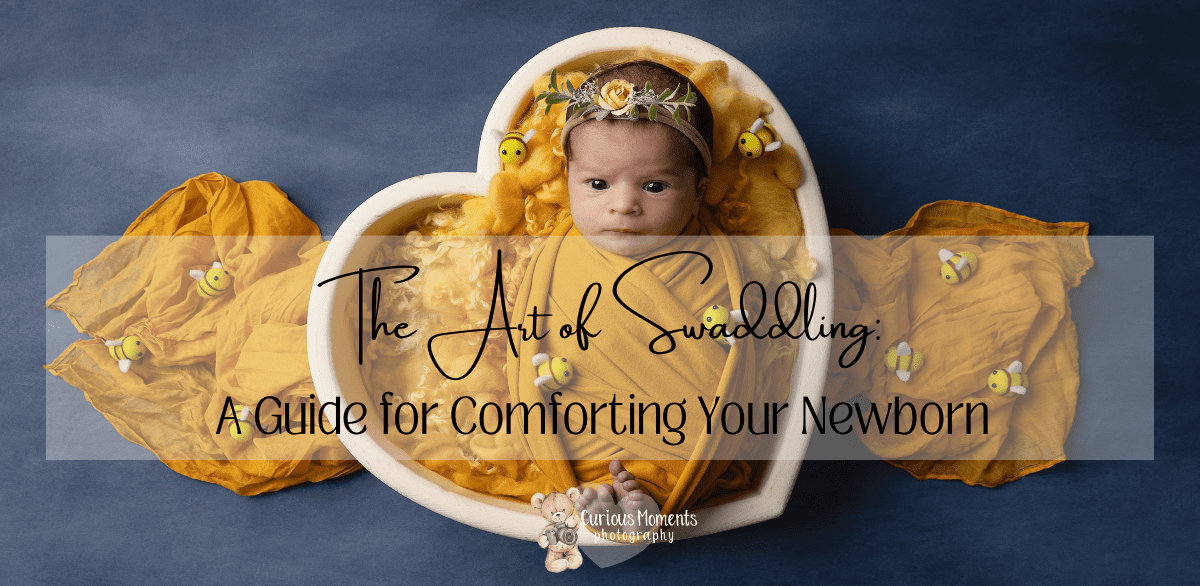
Planning Your Outfits for Your Family Photoshoot Carmarthenshire
March 31, 2022
Baby Skin Problems: 5 Common Things You May Not Know About
May 20, 2022[vc_row][vc_column][vc_column_text css=”.vc_custom_1652368504831{padding-bottom: 0px !important;}”]
14 Things To Expect In The Last Trimester Of Pregnancy
[/vc_column_text][vc_column_text]Congratulations… you made to the last trimester of your pregnancy: time to start the countdown!
For many mums-to-be, the third trimester of pregnancy can be an exciting and somewhat anxious time: you can’t wait to meet baby, but there is a lot happening at once – including changes to your body.
Ready to discover more? Here is our list of 14 things to expect in the last trimester of your pregnancy![/vc_column_text][/vc_column][/vc_row][vc_row full_width=”stretch_row”][vc_column]
1: The Development of Baby’s Organs in The Last Trimester Of Pregnancy
The last three months of pregnancy are when baby’s organs develop and grow. Between 36 and 42 weeks into your pregnancy, your baby’s heart, lungs, liver, intestines, and brain will all start to form.
Your baby’s heart will start to beat regularly between 36 and 38 weeks into the pregnancy.
- The foetus can now see and hear and recognises your voice
- Brain development continues
- The kidneys and lungs continue to mature. At 38 to 40 weeks, the lungs have completed their growth and are able to filter harmful particles from the air
- The bones of the skull are soft so it is easier to pass through the birth canal
- Most babies’ eyes have a blue tint to their irises and when born look almost grey. The permanent eye colour will not appear for some time after birth
- The foetus can suck its thumb and has the ability to cry
- The baby’s skin is covered in a creamy substance called vernix caseosa
- The 36th week is the point at which the head can engage in a process called lightening
- By 38 to 40 weeks, the foetus’ lanugo (fine, soft hair on the body and limbs) has mostly disappeared although remains with some babies and will born hairy
- By 40 weeks gestation your unborn baby’s liver can process food properly
- By 41 weeks gestation your unborn baby’s intestines will be starting to develop
Although many of these developments are gradual, there are some noticeable changes that happen in the last trimester of pregnancy[/vc_column_text]
2: Changes in Body Appearance
One of the most noticeable changes in the last trimester of pregnancy is a weight gain.
Most women gain anywhere from 12 to 18 pounds, but some may gain depending on their size before they got pregnant and their diet during pregnancy.
Other changes that happen during the last trimester of pregnancy include an increased flow of urine, a change in menstrual cycle, and a growth in the size and number of your baby’s internal organs.
As you get closer to labour time your bump will noticeably ‘drop’ and appear lower – this is because your baby is moving into position ready for birth; which is where there head lowers ready to engage into the cervix.
[/vc_column_text][spacer][/vc_column][/vc_row][vc_row full_width=”stretch_row”][vc_column][vc_column_text]
3: Sleepiness and Fatigue
When pregnant, many women experience a shift in their sleep patterns.
This can be due to the added hormones, as well as the physical changes taking place in your body. As your pregnancy progresses, you may find that you are sleepier and have less energy than usual.
This is perfectly normal and should not be a cause for concern. However, if you feel like you are struggling to stay awake or have trouble getting through the day, talk to your doctor about any concerns you may have.
They may be able to give you some advice on how to manage fatigue during this time. In this last trimester it becomes more difficult to sleep as baby is taking up so much room and this adds to the fatigue simply because you are spending half the night trying to get comfortable!
Insomnia during pregnancy is not uncommon, but it can be a frustrating problem to deal with. Many pregnant women experience trouble falling asleep or staying asleep. It’s often difficult to get a good night’s sleep when you’re pregnant because your body is constantly changing and you’re more likely to wake up frequently throughout the night.
One thing that can help ease insomnia during pregnancy is establishing a routine for sleeping. Make sure that you go to bed and wake up at the same time every day, avoid caffeine before bedtime, and avoid watching television or working on the computer in bed. If you do have trouble sleeping, talk to your doctor about possible treatments, such as medication or therapy.[/vc_column_text][/vc_column][/vc_row][vc_row full_width=”stretch_row”][vc_column][vc_single_image image=”16434″ img_size=”full” alignment=”center” style=”vc_box_outline”][/vc_column][/vc_row][vc_row full_width=”stretch_row” css=”.vc_custom_1647463433276{background-color: #005766 !important;}”][vc_column][spacer][vc_column_text css=”.vc_custom_1652367398432{padding-top: 20px !important;background-color: #005766 !important;}”]
4: Nausea and Vomiting
Nausea and vomiting are common in the last trimester of pregnancy.
Many women experience some degree of nausea and vomiting during this time. It is usually mild, but can occasionally be quite severe. Some women find that they vomit repeatedly throughout the day or even at night.
Others may only experience occasional nausea or vomiting. Vomiting can make it difficult to eat or drink, so it’s important to take care not to overdo it if you’re experiencing nausea or vomiting.
If you think you might be experiencing a serious complication, such as dehydration, please consult your doctor.[/vc_column_text][spacer][/vc_column][/vc_row][vc_row full_width=”stretch_row”][vc_column][vc_column_text]
5: Mood Swings
Mood swings are common in the last trimester of pregnancy, as are feelings of anxiety.
Some pregnant women feel overwhelming joy at the prospect of welcoming their baby, while others feel anxious and uncertain about what lies ahead.
It’s important to remember that everyone experiences these emotions differently, and that there is no single right way to react.
Ultimately, it’s important to take care of yourself and recharge your batteries so that you’re able to handle whatever comes your way during this exciting time.[/vc_column_text][/vc_column][/vc_row][vc_row full_width=”stretch_row”][vc_column][vc_column_text]
6: Constipation and Diarrhoea
Constipation is a common problem during pregnancy.
It can be caused by changes in the way your body digest food, increased fluid retention, and a variety of other factors. Dehydration can also cause constipation.
Diarrhoea is another common problem during pregnancy. It can be caused by a variety of things, including food allergies, viral infections, and bacterial infections.[/vc_column_text][/vc_column][/vc_row][vc_row full_width=”stretch_row”][vc_column][vc_single_image image=”16435″ img_size=”full” alignment=”center” style=”vc_box_outline”][/vc_column][/vc_row][vc_row full_width=”stretch_row” css=”.vc_custom_1647463433276{background-color: #005766 !important;}”][vc_column][spacer][vc_column_text css=”.vc_custom_1652363751300{padding-top: 20px !important;background-color: #005766 !important;}”]
7: Frequent Urination and Leakage of Urine
One of the most common symptoms during pregnancy is frequent urination and leakage of urine.
This is due to increased hormone levels and the pressure that is put on the bladder.
As your baby gains weight and grows in size it is natural that there will be less room and more pressure put on all areas around baby, and unfortunately for us that’s the bladder too! Which means frequent trips to the toilet and many wake up calls too![/vc_column_text][spacer][/vc_column][/vc_row][vc_row full_width=”stretch_row”][vc_column][vc_column_text]
8: Increased Sensitivity to Sound and Touch
Increased sensitivity to sound and touch is common in the last trimester of pregnancy.
This increased sensitivity may make it difficult to sleep or concentrate, as sounds and touch can be overwhelming.
Some women also experience a heightened sense of smell and taste along with heartburn, nausea, and vomiting.[/vc_column_text][/vc_column][/vc_row][vc_row full_width=”stretch_row”][vc_column][vc_column_text]
9: Decreased Appetite & Heartburn during the last trimester of pregnancy
Many pregnant women experience a decrease in appetite due to nesting instincts and the fact that they are now eating for two.
This may lead to weight loss, even if the woman does not diet.
Some women also experience heartburn during this stage of pregnancy, as the stomach expands and the acidity increases. When you’re pregnant, your appetite changes a bit.
This is because your body is preparing to house a new life, and you may not feel as hungry as you used to. In fact, some women find that their appetite decreases even more in the last trimester of pregnancy.
This can be caused by several things, including the extra room that baby takes up in your stomach. You may also experience nausea or fatigue, both of which can make it difficult to get through a meal.
However, with some rest and patience, you’ll be able to manage everything just fine![/vc_column_text][/vc_column][/vc_row][vc_row full_width=”stretch_row”][vc_column][vc_single_image image=”16436″ img_size=”full” alignment=”center” style=”vc_box_outline”][/vc_column][/vc_row][vc_row full_width=”stretch_row” css=”.vc_custom_1647463433276{background-color: #005766 !important;}”][vc_column][spacer][vc_column_text css=”.vc_custom_1652367464142{padding-top: 20px !important;background-color: #005766 !important;}”]
10: Restless Leg Syndrome
Restless leg syndrome (RLS) is a common neurological disorder that is characterized by an intense, persistent urge to move the legs.
The cause of RLS is unknown, but it may be caused by a combination of genetic and environmental factors.
Symptoms typically first develop during the last trimester of pregnancy, but they can also occur at any time during pregnancy. Restless leg syndrome can also be a sign of a lack of salt in your diet – if (like me) you don’t add salt to anything then you may well be experiencing this symptom.
For me it was as simple as eating some extra salty crisps and those horrible feelings went away – be very careful not to over-do it! And consult your doctor if you’re not sure![/vc_column_text][spacer][/vc_column][/vc_row][vc_row full_width=”stretch_row”][vc_column][vc_column_text]
11: Spider Veins, Varicose Veins and Haemorrhoids
When pregnant, many women worry about the development of spider veins, varicose veins and haemorrhoids.
- Spider veins will become more visible as your body expands and your pressure increases.
- Varicose veins will enlarge and may ooze or bleed.
- Haemorrhoids may become swollen and tender, and may bleed when irritated.
All of these are possible but not certain, and something you really shouldn’t worry about; most cases they will disappear after birth. [/vc_column_text][/vc_column][/vc_row][vc_row full_width=”stretch_row”][vc_column][vc_column_text]
12: Shortness of breath
Few pregnant women experience shortness of breath, but it’s a common concern. The main reason for shortness of breath during pregnancy is that your body is expanding rapidly, and your lungs are working harder to take in air.
Our it can be a simple as the positioning of baby!
If you have a little mover on your hands (or should I say in your tummy) then the likelihood is they will move again soon and make themselves comfy in a different spot – just hope, it’s a nicer spot!
In the meantime, all you can do is have a tern word and hope they will listen! Haha!
However, if you experience shortness of breath, see your doctor to rule out a more serious problem.[/vc_column_text][/vc_column][/vc_row][vc_row full_width=”stretch_row”][vc_column][vc_single_image image=”16437″ img_size=”full” alignment=”center” style=”vc_box_outline”][/vc_column][/vc_row][vc_row full_width=”stretch_row” css=”.vc_custom_1647463433276{background-color: #005766 !important;}”][vc_column][spacer][vc_column_text css=”.vc_custom_1652367631788{padding-top: 20px !important;background-color: #005766 !important;}”]
13: Spotting or Bleeding during the last trimester of pregnancy
You may experience spotting or bleeding during this time, especially if you’re carrying twins or triplets.
Spotting or bleeding during the last trimester of pregnancy may be a sign that your baby is developing well.
It may also be a sign that you are going into labour.
If you are spotting or bleeding, make sure to talk to your doctor to see if you should go to the hospital.[/vc_column_text][spacer][/vc_column][/vc_row][vc_row full_width=”stretch_row”][vc_column][vc_column_text]
14: Braxton Hicks Contractions
These mild contractions of the uterus can occur at any point in your last trimester. They can be uncomfortable but aren’t generally painful and aren’t an indication of labour.
They are perfectly normal!
They may help prepare the cervix for birth. Braxton Hicks contractions do not cause labour and are not a sign that labour is beginning.
Braxton Hicks contractions are usually mild, barely noticeable, and last for about 15-20 seconds.
They can occur at any time during the last trimester of pregnancy but are most common in the early morning hours.
Some women find them reassuring, while others find them disturbing. Most women go through a few Braxton Hicks contractions during their pregnancy.[/vc_column_text][/vc_column][/vc_row][vc_row full_width=”stretch_row”][vc_column][vc_column_text]
What to expect from the last trimester of pregnancy
The last trimester of pregnancy can be a challenging time, but it’s also incredibly rewarding.
And it won’t be long before you are holding your baby in your arms. Keep monitoring your baby movements and if you haven’t already: get that hospital bag ready!
And be sure to talk to your doctor about any concerns you may have.
If you would like to read more about the last trimester of pregnancy be sure to check out NHS website here.[/vc_column_text][/vc_column][/vc_row][vc_row full_width=”stretch_row” css=”.vc_custom_1647465599182{background-color: #005766 !important;}”][vc_column][spacer]




